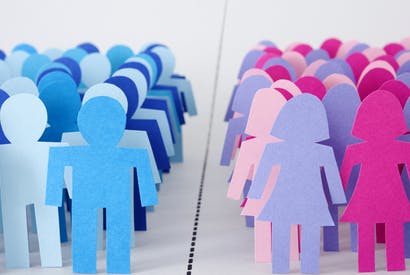When is a women’s library not a women’s library? When the wrong sort of women try to use it. That seems to be the problem with Glasgow Women’s Library (GWL) which accepted then cancelled a booking from a feminist group, which it now claims does not meet its ‘values’. What kind of feminist organisation wouldn’t meet the values of a women’s library? You can probably guess where this is going. For Women Scotland isn’t just any feminist group; it’s a Bad Feminist group, one of those feminist groups that says women share a sex, not a ‘gender identity’, and questions proposed changes to the Gender Recognition Act to abandon medically-supported gender transition in favour of self-identification.
For Women booked a space at GWL to discuss these matters on Friday, only for the library to cancel citing closure for repairs. However on Twitter, the hashtag-pronged pitchfork of the modern mob, GWL was interrogated about accepting a booking from a Bad Feminist group. Whereupon it confirmed For Women’s values ‘do not align’ with those of the library and the campaigners would not be getting any future bookings.
https://twitter.com/womenslibr…
https://twitter.com/womenslibr…
That is GWL’s side of the story. (The library’s media team was contacted on Friday but no response has been forthcoming.) What of For Women? Their spokeswoman, who handled the arrangements, tells me she made the booking by phone on February 20 and by a follow-up email the next day. She says it was made clear to GWL during the phone conversation that the purpose of the meeting was ‘for a group of women to discuss and support each other with completing a government consultation’. A further phone conversation to confirm attendance numbers and other details took place on Thursday morning but a few hours later, the library called to cancel because of a leak that required repair.
When For Women’s representative tried to reschedule, she says all suggested dates were fully booked and that GWL undertook to phone back after consulting their diary. The call back, she says, never came and later that afternoon the tweets appeared. The spokeswoman added: ‘We will be contacting GWL Board of Directors to raise our concerns and discuss a way forward, and will be seeking an apology and a rebooking for our meeting.’
GWL says For Women does not align with its values, but does GWL align with its own values, as set out in its ‘Our Values’ statement? When it claims to ‘provide a safe welcoming space where women can access information’, does that not include gender-critical women and information about their sex-based rights and the potential impact of proposed legislation? When it claims to help women ‘find their voice’, does that not include voices that carry the wrong opinions? When it claims to help women ‘take control of their lives and achieve their potential’, does that not include women concerned about the laws that govern them and who aspire to participate in an ongoing national debate?
GWL is not a private library. It receives funding from Creative Scotland (the Scottish equivalent of the Arts Council), the Scottish government and Glasgow City Council. Its deplatforming of For Women is emblematic of the public discourse on trans rights and women’s rights. The Scottish government is currently running a consultation on changes to the Gender Recognition Act that is little more than a sham exercise. Ministers are determined to introduce self-identification and their position is dutifully echoed by third-sector organisations in receipt of core funding from those very ministers. Gender-critical organisations like For Women or the LGB Alliance do not enjoy public funding and, despite their best efforts, cannot hope to match the resources or clout of their opponents. The Scottish government has created a taxpayer-funded feedback loop and is using it as the basis to make public policy.
As always when we’re discussing these matters, it’s important to remember the human beings at the heart of this discussion. People who suffer from gender dysphoria and who come to the decision to transition should be treated with empathy and respect. Their welfare should guarded and their dignity upheld. There are changes that could be made to the gender recognition process that would make a practical difference to their lives, such as removing the cost of obtaining a medical certificate, reducing waiting times and investing in support services.
But women have rights too and they need places to meet and discuss them and if they can’t meet in a women’s library, where can they meet? This is why it’s specious to say their freedom of speech has not been infringed because they can find another location. The immediate issue is not free speech in a legal sense but free debate. Wherever For Women tries to book a meeting room, be it a library or a conference hall or a coffee shop, the venue can expect a deluge of tweets and emails aimed at securing cancellation. Why go to all the bother of defeating your opponents in argument when you can just drive them from the public sphere, deny them the opportunity to build their own movement, and effectively make opposition impossible?
That’s the problem with the transgender debate: there isn’t one. One side is trying to have a debate and the other side is trying to shut it down.







Comments